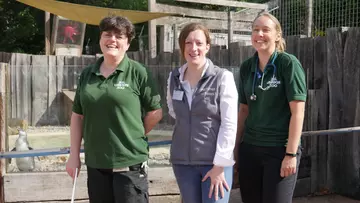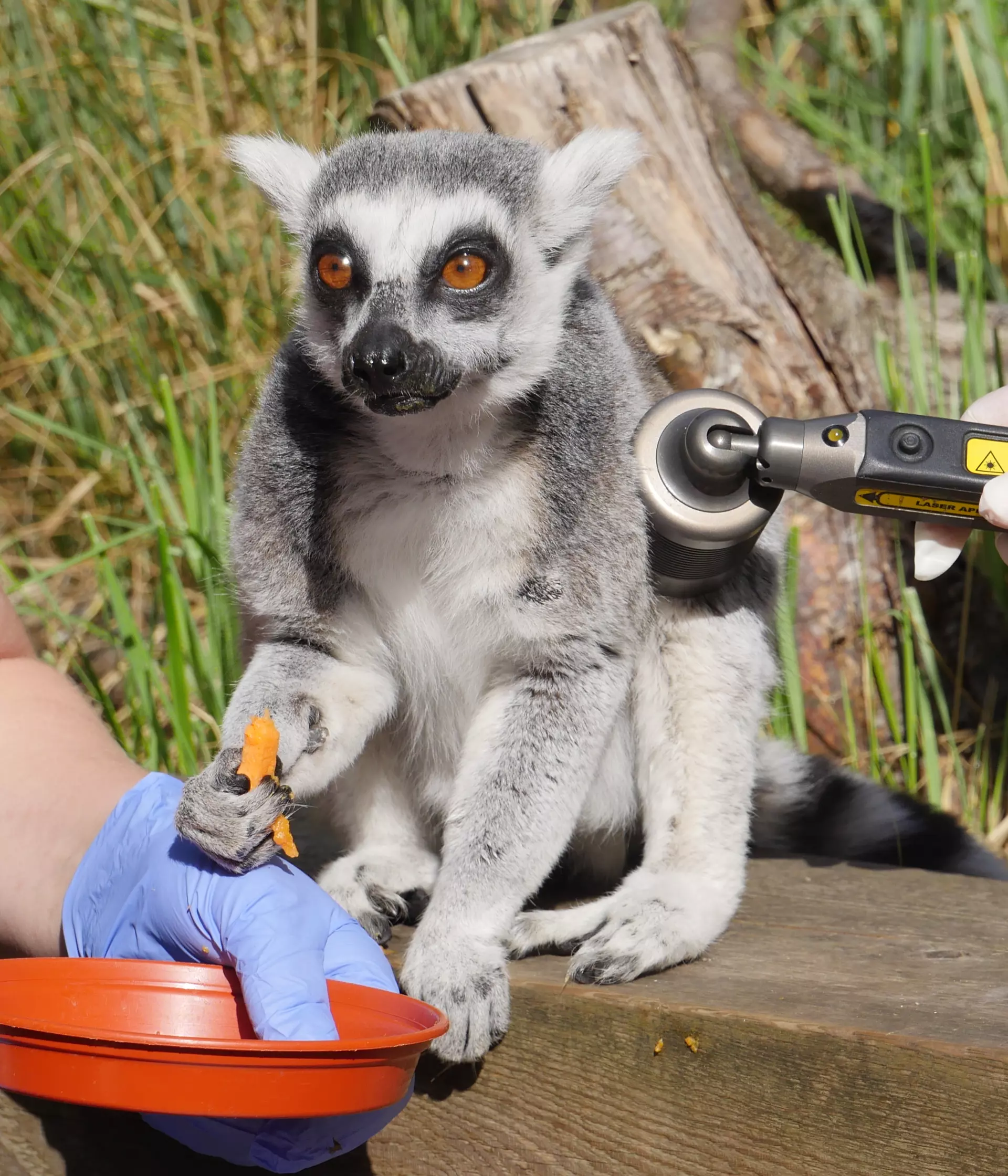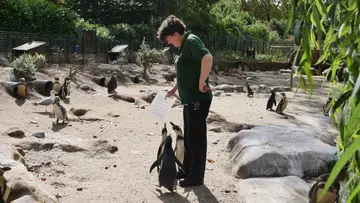
Just as Sophie Sparrow our Senior Veterinary Nurse sits down in the office to write up her notes, she’s called again - up and off she goes, across to another corner of London Zoo to check-up on a new patient…
First up, a ring-tailed lemur (Lemur catta) named Al. At 26 years old he's the oldest in the troop and edging over the average life span for the species. Al seems to be holding his ground as the alpha male – even with three new arrivals from Whipsnade Zoo. The troop is made up of a group of bachelors but Al (in his old age) needs a bit of extra treatment once a week, Sheryl Bradley, Veterinary Nurse at London Zoo explains:
“Al is our oldest lemur at London Zoo and he now sadly has spondylosis of his spine – a degenerative condition of the spine for which he receives laser therapy once a week to help promote pain relief. We use this as part of his treatment alongside non-steroidal anti-inflammatories and joint supplements. He’s been trained to come and eat his breakfast from a bowl with his medication inside of some sweet potato. He just sits there during the laser therapy, he has a choice to move away but he seems relaxed during the treatment and he enjoys the attention at least”.
The second job of the day – body condition scoring humboldt penguins (Spheniscus humboldti). A harder job than might seem when you’ve got 96 penguins to get through and they're at the height of moulting season. Feathers everywhere, sand eels everywhere – Heather Macintosh, Veterinary Nurse at London Zoo explains why this such a vital job:
“Body condition scoring is something we help out with once a week at the Penguin Pool, providing a fresh pair of eyes from someone who doesn't see them every day. We give a visual assessment of individuals within the group just to check their weight gain but particularly weight loss throughout the seasons. This can be an early sign of illness in an animal that tries to otherwise mask when it is unwell. During the moulting season the penguins stay on land, because they’re no longer waterproof. Typically, before the moulting occurs the penguins gorge themselves beforehand, so they have plenty of fat to live off during the moulting season. A normal adult female weighs between 3.4-4.5kg and males 4-5kg.”

Time for babies, as the third job of the day involves checking up on the new additions to the penguins – Rosie and Rainbow have been hand-reared by the team, after Rainbow's parents accidentally damaged her egg. The team follows a monthly chart checking the juvenile’s weights daily, with Rosie hitting 3.2kg at just 95 days-old!
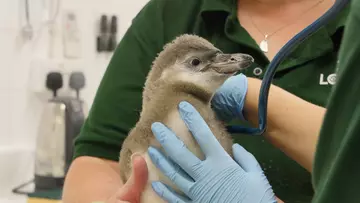
Sophie rounded up the morning with a brief walk around Rainforest Life to check out some of the small mammals in the exhibit – characters such as Bandit, a three-legged golden-headed lion tamarin (Leontopithecus chrysomelas). Sophie explains about the close working relationship the veterinary nurses and keepers have at the Zoo:
“Our keepers are like the clients in a veterinary practice. They call us when they need us to look at an animal and we really rely on the keepers intimate knowledge of their animals. If we give the animal medication – are they going to take it? Are we going to be able to get the medication administered? As you can’t get close to the animals in the majority of cases, so we have to work together to think of inventive ways for them to take the medication. Obviously, it doesn’t always taste that nice, so it can be a bit of a challenge. However, building that relationship up with the keepers is essential – as they are the primary carers for that animal."
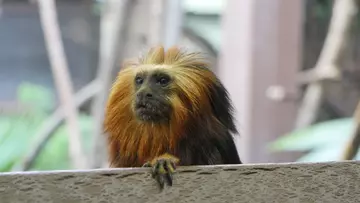
Communicating about being a veterinary nurse is also something the team is passionate about, which is apparent from the brilliant work experience opportunities for students the veterinary department provides. Sophie explains how someone following in her footsteps could become a veterinary nurse at the Zoo:
“Job opportunities are so few and far between, you’re always going to need to have experience, whether that’s zoo experience as a veterinary nurse or a keeper. It’s also about getting yourself known in that environment. Having the confidence to network at conferences and shouting about where you want to get to. We take on work experience veterinary nurses – here as well and I think it’s a great opportunity for veterinary nurses wanting to get a breadth of experience with exotic animals – but also the great thing about becoming a veterinary nurse is there is no one route into the career, everyone here at London Zoo has arrived through a completely different way and that’s why they are such a fantastic team to work with!”
